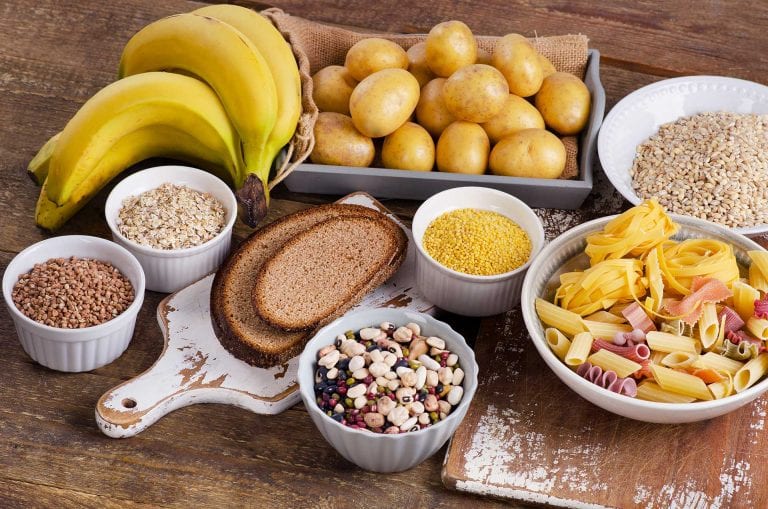As the days get colder and the nights get longer, it’s natural for our mood to dip and the winter blues to set in. But, there is good news! Simple diet and lifestyle changes can help offset the depressing effects of autumn and winter.
Here are our 5 top tips to keep you feeling cheerful.
1. Choose good carbs
Low carbohydrate diets aren’t a good idea during winter. Research from Arizona University showed these diets increased fatigue and reduced the desire of overweight people to do exercise.
But, the type of carbs you choose are important. Carbs that release more slowly and keep blood glucose steadier are a better choice to help keep mood on a more even keel.
Good examples of these carbs include whole grains like brown rice, wholemeal bread and whole grain breakfast cereals, potatoes and sweet potatoes served in their skins, and pulses such as chickpeas and baked beans.
Mixing these good carbs with protein foods like lean meat, fish and eggs at meals times will provide useful slow-burn energy and curb hunger levels.
2. Get your oily fish boost
Twice a week, it also pays to tuck into oily fish which can include tinned or fresh varieties of sardines, mackerel or salmon.
Studies show that people who consume these omega 3-rich fish infrequently are more likely to suffer depression. This may be because omega-3s help in the production of important neurotransmitters in the brain.
If you’re vegetarian you need to get your omega-3s from flax seeds, rapeseed oil, walnuts and green leafy veg.
3. Get enough vitamins and minerals
Vital nutrients for fighting depression, fatigue and irritability include vitamins B1, B3, B12 and folic acid, plus vitamin D and the mineral selenium.
Eating a variety of lean protein foods, whole grains, green leafy veg and nuts – particularly Brazil nuts, which are the richest source of selenium, should ensure you get enough of all of these.
Good levels of vitamin D are harder to achieve during winter as the sun isn’t strong enough between September and April for the vitamin to be made in your skin.
As few foods contain vitamin D, the official recommendation is to supplement with 10 micrograms a day.
4. Enjoy a little bit of what you fancy
During the gloomier months, it’s also a great psychological boost to allow yourself a few favourite comfort foods. The trick is to give them a makeover so they still taste delicious, but won’t overload you with calories, sugar or saturated fat.
For example, try making a satisfying shepherd’s pie with extra mince and parsnip and potato mash, or, in place of the usual yummy apple pie and custard, enjoy a baked apple sprinkled with Canderel with a serving of semi-skimmed milk custard (also sweetened with Canderel).
Another brilliant way to use the calorie-free sweetener is in a comforting cup of hot cocoa to help you get a good night’s sleep.
5. Stay active!
To stay more cheerful you should be physically active. According to the charity MIND there’s convincing evidence that 30 minutes vigorous exercise, such as running, three times a week can lift mood.
Even just a walk in the fresh air can do the trick. For maximum mood benefit, aim to stride out for an hour in the middle of the day, when you will get the most natural light exposure.









